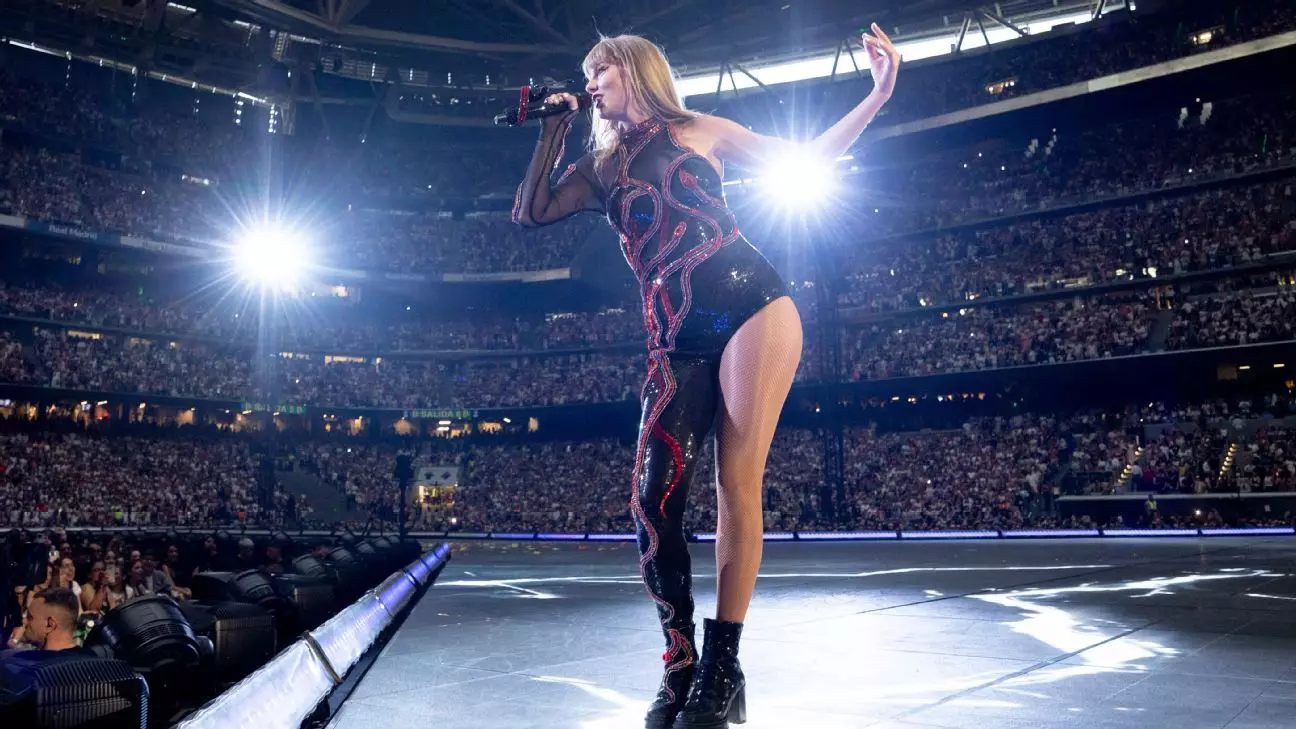Real Madrid’s iconic Santiago Bernabéu stadium, recently transformed into a multifaceted entertainment venue, is currently under scrutiny due to noise complaints raised by local residents. Since the stadium began hosting concerts featuring well-known artists such as Taylor Swift and Karol G, the volume levels have sparked significant concerns among neighbors. As a pivotal factor in its redevelopment, the stadium was designed to support year-round activities beyond football games, aiming to enhance the cultural landscape of Madrid. However, this ambition now faces setbacks as the club responds to the critical feedback regarding acoustic disturbances.
Provisional Rescheduling: A Temporary Solution
In light of increasing noise complaints, Real Madrid announced a provisional rescheduling of all upcoming concerts, indicating a recognition of the predicament they face. The club has committed to ensuring compliance with municipal regulations intended to regulate sound levels during events. This move is particularly noteworthy as it reflects the club’s willingness to maintain a positive relationship with the community, demonstrating an understanding that their actions affect local residents’ quality of life. The decision underscores the necessity for organizations that host large-scale events to align their operational practices with the expectations and needs of neighboring constituents.
Despite the stadium’s recent renovations that included soundproofing measures, the enforcement of noise-level regulations has proved challenging. Real Madrid acknowledged this struggle, stating that effective compliance with urban noise regulations has been difficult for event organizers and promoters. This situation implies a broader industry issue — the balancing act between creating vibrant cultural experiences and respecting local communities’ peace. As the club grapples with these compliance issues, it also emphasizes its dedication to producing sound conditions that are acceptable and beneficial for future concerts.
Several upcoming performances by Spanish artists such as Dellafuente, Aitana, and Lola Indigo are now in limbo as concert dates are pushed back or rescheduled. This uncertainty not only alters the plans of the artists involved but also impacts potential ticket holders who eagerly anticipated these events. While non-musical events will continue as planned, the reshuffling leaves many in the local and artistic community with lingering questions about the sustainability of concert activities at the Bernabéu under current conditions.
A Look Ahead: Balancing Act of Entertainment and Community
As Real Madrid navigates this complex landscape of regulations and community relations, the situation highlights a pivotal challenge for urban venues worldwide — how to seamlessly integrate large public events into the fabric of the city while respecting the needs of residents. Future strategies may involve exploring advanced sound technology or alternative scheduling to minimize disturbances. Ultimately, the outcome of these efforts could serve as a model for other cities grappling with similar conflicts between urban entertainment and residential tranquility. The path forward will undoubtedly require collaboration, innovative solutions, and perhaps a cultural shift in how entertainment venues operate in densely populated areas.
